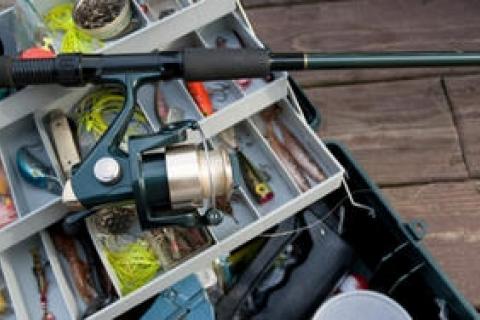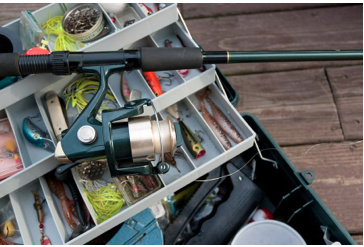
 With catch and release fishing, both time and careful skill are key to keeping your catch alive. Proper fishing tools and a quick and gentle release is required to get your catches back into the water, safe and sound.
With catch and release fishing, both time and careful skill are key to keeping your catch alive. Proper fishing tools and a quick and gentle release is required to get your catches back into the water, safe and sound.
In fact, it’s important to note just how important quick, gentle releases are: Under certain conditions, taking even a little too long to release can harm fish and even result in their deaths, working against the goal of conservation and fishing for the future.
Important too is being aware that freshwater or saltwater fish brought up from deep water (30, 40, 50 feet or greater) can suffer from an over-inflated swim bladder called hyperbuoyancy. A condition where the fish may not be able to swim upright or submerge after being released. Not all floating fish die, but enough do to be a concern.
Three techniques used to deal with hyperbuoyancy are:
- Fizzing a fish is done by puncturing the air bladder with a hypodermic (hollow) needle to reduce gas and pressure while holding the fish underwater.
- Fizzing can also be done by inserting the hypodermic needle into the air bladder through the fish’s side or mouth.
- Deep release or caging. With this method the fish are lowered to the depth where they were caught using a weighted cage that is open on the bottom or small plastic laundry basket can be used.
The good news: Anglers can use several key tools to aid in speeding up and softening the release process.
Make sure you have these items next time you set out:
Barbless Hooks.
Barbless fishing hooks, like these from Gamakatsu®, help make releases quick and easy, while still penetrating and holding well.
Dehooking Tool.
A dehooking tool is used to remove the hook and keeps the hook from re-entering the fish. Some dehookers are designed for removing fish hooks that were swallowed. Some dehookers are required in some states, check your local fishing laws and be prepared.
Rubberized Nets.
Rubberized fishing nets are helpful in stabilizing fish when working to remove hooks, while also preserving and protecting the slime coating of the fish. Furthermore, nets can even assist anglers in removing hooks while fish are kept in the water, cutting down on the need to remove fish from their element.
Grips.
Grips enable anglers to securely hold fish by the jaw, protecting both fishermen and the catch: Anglers can avoid being finned, while fish maintain slime coating.
In addition, some grips contain a scale, as well, making the recording of a catch’s weight much more streamline and efficient.
Pliers.
Fishing pliers are an invaluable tool for quick, safe and secure hook removal.
Fish Venting Tools.
Fish venting tools involves puncturing the air bladder with the venting tool to release gas and reduce pressure. When done correctly as you’re holding the fish underwater, a stream of bubbles is released.
For more on catch and release fishing, search on Bass Pro 1Source using keywords "catch & release".
- 6040 views

